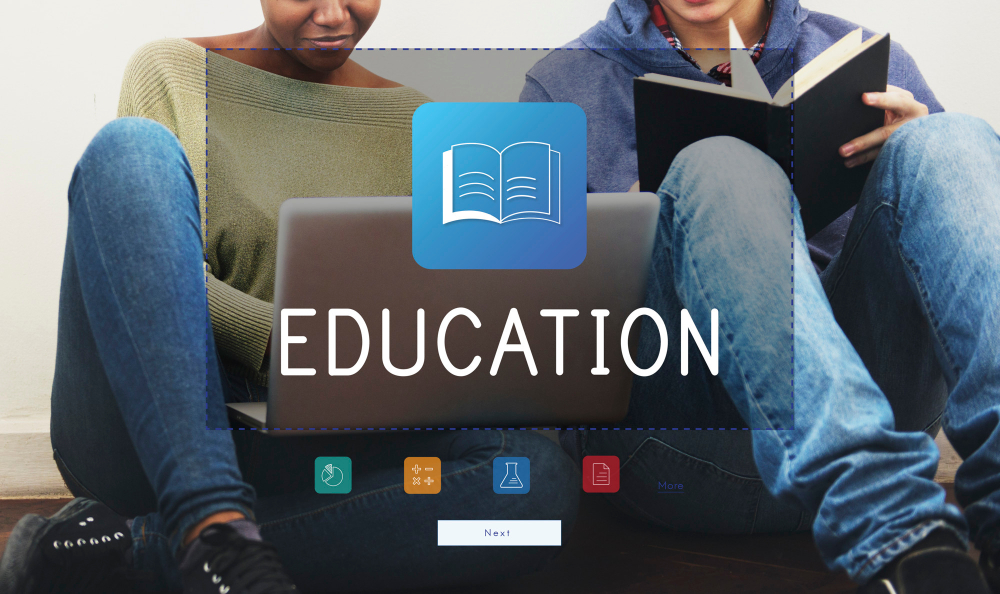Since its inception in 1968, the International Baccalaureate (IB) has emerged as a global standard-bearer for educational excellence. With a mission aimed at forging a better world through education, the IB champions an inclusive approach that enhances intellectual, personal, emotional, and social abilities. Central to its philosophy is the cultivation of curious, knowledgeable, and empathetic individuals who are driven to excel. Over time, the IB has introduced diverse programs that cater to varying age groups and educational preferences.
Building on this foundational philosophy, the genesis of the IB was marked by an ambition to offer an education that challenges boundaries and embraces comprehensive learning. This ambition has materialized into a curriculum designed to bolster critical thinking, foster intercultural understanding, and cultivate respect. The steadfast dedication to these ideals has positioned the IB as a formidable entity in global education circles. Exploring deeper into its influence reveals how profoundly the IB molds and continuously redefines educational norms across continents.
From modest beginnings, the IB’s scope and impact have expanded significantly; it now stands as an emblem of high-quality education recognized worldwide. Its programs permeate thousands of schools globally—evidence of its widespread allure and efficacy. The narrative of IB’s success underscores its sustained pertinence and transformative effects on students’ lives, educators’ approaches, and overall educational frameworks.
Expanding Horizons
The International Baccalaureate (IB) curriculum has found a home in over 150 countries, illustrating its wide appeal and versatility. This global embrace serves as proof of the program’s effectiveness in addressing the varied educational demands and benchmarks across continents. Nations such as Australia, Canada, and Singapore have woven the IB framework into their national education systems, acknowledging its capacity to boost student achievements and equip them for an interconnected world.
This influence is evident not only globally but also within specific nations. In the United States, a myriad of public and private schools have embraced the IB curriculum, catalyzing a shift toward more demanding and inclusive educational practices. Over in the United Kingdom, the IB stands as a robust alternative to traditional A-levels by providing an education that is both wider in scope and more balanced.
The influence of the IB extends beyond individual schools or countries; it is a major force in molding global education standards. Championing a learner-centered approach, it emphasizes critical thinking skills alongside intercultural understanding and personal growth. Through these principles, the IB establishes itself as a hallmark of quality education that surpasses geographical limits.
Diverse Programs for All Ages
The IB curriculum unfolds across four carefully designed programs, each tailored to meet the educational needs of specific age groups. For the youngest scholars, aged 3 to 12, the Primary Years Programme (PYP) ignites a passion for learning. This program employs inquiry-based and transdisciplinary methods that encourage pupils to weave connections across various subjects, setting a robust foundation for future academic endeavors.
As students mature, those aged 11 to 16 engage with the Middle Years Programme (MYP). This stage acts as a critical bridge linking primary education with secondary schooling. The MYP cultivates skills in critical thinking and intercultural understanding while focusing on personal growth. Such preparation gears up students for the complexities of the Diploma Programme (DP) and their future educational journeys.
The DP caters to older students, from ages 16 to 19, known for its stringent academic requirements and comprehensive nature. It encompasses six subject groups alongside core components like Theory of Knowledge (TOK), Creativity, Activity, Service (CAS), and the Extended Essay (EE). This blend ensures a well-rounded curriculum that challenges students intellectually while promoting holistic development.
Additionally, the Career-related Programme (CP) offers a path for those inclined towards immediate professional engagement post-high school while still benefiting from an IB framework. Available also for students between ages 16 to 19, this program merges rigorous academic study with practical experiences aimed at smoothing transitions into higher education or direct workforce entry.
Nurturing the Whole Student
The International Baccalaureate (IB) adopts a comprehensive educational approach that transcends mere academic success. It aims to cultivate not only the intellectual but also the personal, emotional, and social facets of student development. This all-encompassing strategy shapes students into versatile individuals, equipped to navigate the complexities of today’s global landscape. The IB fosters a robust sense of identity, empathy, and a dedication to positively influencing their communities.
A key component of this approach is its focus on experiential learning. Students plunge into a variety of activities and projects that bolster personal growth and civic responsibility. Take, for instance, the Creativity, Activity, Service (CAS) component within the Diploma Programme; it compels students to immerse themselves in artistic pursuits, physical exertion, and volunteerism. These engagements are pivotal in honing vital life skills such as collaboration, leadership capabilities, and analytical thinking.
Moreover, the IB emphasizes the importance of intercultural understanding and respect. Through its diverse curriculum and initiatives like global forums or international days at school campuses worldwide, students from different backgrounds explore cultural diversity, joyfully celebrating it and thereby fostering global citizenship ideals. This commitment not only nurtures empathy but also equips students with respect for myriad cultures, positioning them well for success in our globally interconnected society.

Cultivating Analytical Thinkers
IB Math stands as a key element within the IB curriculum, sharpening students’ analytical prowess and problem-solving capabilities. This program delves deeply into mathematical theories, linking them seamlessly to their practical uses in the real world. It encourages students to adopt a critical mindset and tackle problems from varied angles, nurturing both a passion for learning and an adaptive way of thinking.
Spanning topics such as algebra, geometry, calculus, and statistics, the IB Math curriculum employs diverse educational strategies including inquiry-based learning and team-oriented problem-solving exercises. This multifaceted approach not only broadens students’ understanding of math but also highlights its practical implications in daily scenarios.
With a strong focus on analytical skills, IB Math lays a solid foundation for academic achievement and professional success. The program’s commitment to cultivating critical thinkers is pivotal for thriving in numerous sectors including science, engineering, finance, and technology. Beyond academic confines, IB Math equips learners with essential skills to effectively address the challenges of our increasingly complex world.
Encouraging Independent Thought
The IB curriculum is carefully developed to nurture critical thinking and self-directed learning, equipping students for a lifetime of inquiry. This emphasis on analytical skills permeates various disciplines and projects, notably the Theory of Knowledge (TOK) course and the Extended Essay (EE) within the Diploma Programme. These elements are pivotal in urging students to scrutinize beliefs, assess evidence critically, and construct cogent arguments.
In the Theory of Knowledge (TOK) course, learners delve into the essence of knowledge and its acquisition processes. They investigate diverse modes of understanding—such as perception, reasoning, and emotion—and reflect on their consequences for grasping reality. This journey not only deepens their comprehension of knowledge but also cultivates a spirit of curiosity and intellectual modesty.
The Extended Essay (EE), a cornerstone project in the IB curriculum, further champions independent thought and analytical prowess. Through this self-guided research endeavor on a topic they are passionate about, students sharpen their research methodologies alongside their writing and analytical faculties. Such rigorous engagement prepares them to embark confidently on independent scholarly pursuits and contribute meaningfully to their fields.
Opening Doors to Higher Education
Universities across the globe hold the IB diploma in high esteem, recognizing its potential to give students a leg up during the college admissions process. The extensive scope and rigorous demands of the IB curriculum are highly valued for fostering well-rounded individuals. This appreciation by higher education institutions often results in enhanced prospects for IB alumni, who are frequently targeted by prestigious universities.
Evidence from university feedback and statistical data underscores the merits of holding an IB diploma. For instance, research by the Higher Education Statistics Agency (HESA) reveals that holders of this diploma are more inclined to enroll in elite universities and outperform their counterparts academically. Moreover, numerous admissions officers commend the diploma’s focus on cultivating critical thinking, research prowess, and global consciousness.
The influence of an IB education extends deeply into higher education opportunities. Equipped with essential skills and broad knowledge, IB graduates navigate university challenges adeptly. The curriculum’s emphasis on comprehensive development not only prepares them for academic success but also ensures they excel in the multicultural, vibrant settings of modern universities—paving their way for future achievements.
Empowering Educators
The International Baccalaureate (IB) program thrives not just on its challenging curriculum, but equally on the commitment and skill of its educators. The IB organization commits to thorough training and professional development for teachers, ensuring they possess the necessary tools to effectively impart the curriculum. These enrichment avenues range from workshops and online courses to ongoing professional growth initiatives.
At the heart of this training is an emphasis on inquiry-based learning coupled with student-centered teaching strategies. Educators are propelled towards crafting dynamic and interactive classrooms that nurture critical thinking and self-directed learning. This educational approach not only deepens students’ grasp of topics but also ignites a passion for knowledge.
Moreover, the IB fortifies its teaching force through a worldwide network of educators, which opens doors for collaboration and exchange of best practices. This community support system keeps teachers engaged and inspired, significantly enhancing the efficacy of the IB program. Through steadfast investment in teacher training and professional development, the IB ensures its educators are equipped to address the varied needs of their pupils.
Addressing Challenges
Despite its numerous achievements, the IB program encounters several hurdles and critiques. A primary concern is its accessibility; the costs associated with the program can be prohibitive, limiting availability to a broader student base. In response, the IB organization is actively seeking solutions through scholarships and financial aid for schools and students who require assistance.
Implementing the IB curriculum presents another significant challenge due to its demanding nature for both educators and learners. The extensive academic standards necessitate a substantial commitment of time and resources. To facilitate this process, the IB organization extends a variety of support services such as training sessions, digital tools, and access to a worldwide network of educational professionals.
Some critics point out that not all students may thrive under the IB framework, which emphasizes critical thinking and self-directed learning—skills that might be daunting for some. Nevertheless, the program’s adaptable structure permits schools to tailor their curricula to accommodate varying student needs effectively. By continuously addressing these issues, the IB organization strives to refine and enhance its offerings, ensuring they stay pertinent and beneficial.
Looking Ahead
As we peer into the future, the International Baccalaureate’s influence on global educational benchmarks is poised to expand. Its focus on all-encompassing education, critical analysis, and cross-cultural awareness is perfectly suited for our increasingly interconnected and intricate world. Through ongoing innovation and adaptation, the IB is well-equipped to ready students for both the hurdles and prospects that define the 21st century.
A promising direction for IB’s evolution involves embracing technology and digital learning modalities. With education being reshaped by technological progress, the IB has an opportunity to enrich its curriculum by incorporating these technologies. This strategy will not only make learning more tailored and captivating but also equip students with essential digital literacy skills necessary in a tech-centric society.
Dedicated to perpetual enhancement and creativity, the IB is set to maintain its stature as a pivotal player in worldwide education. By adhering to its foundational mission and values, it continues to motivate and empower learners, educators, and communities across the globe. The trajectory of the IB shines brightly with a promise of escalating influence on educational standards worldwide.

